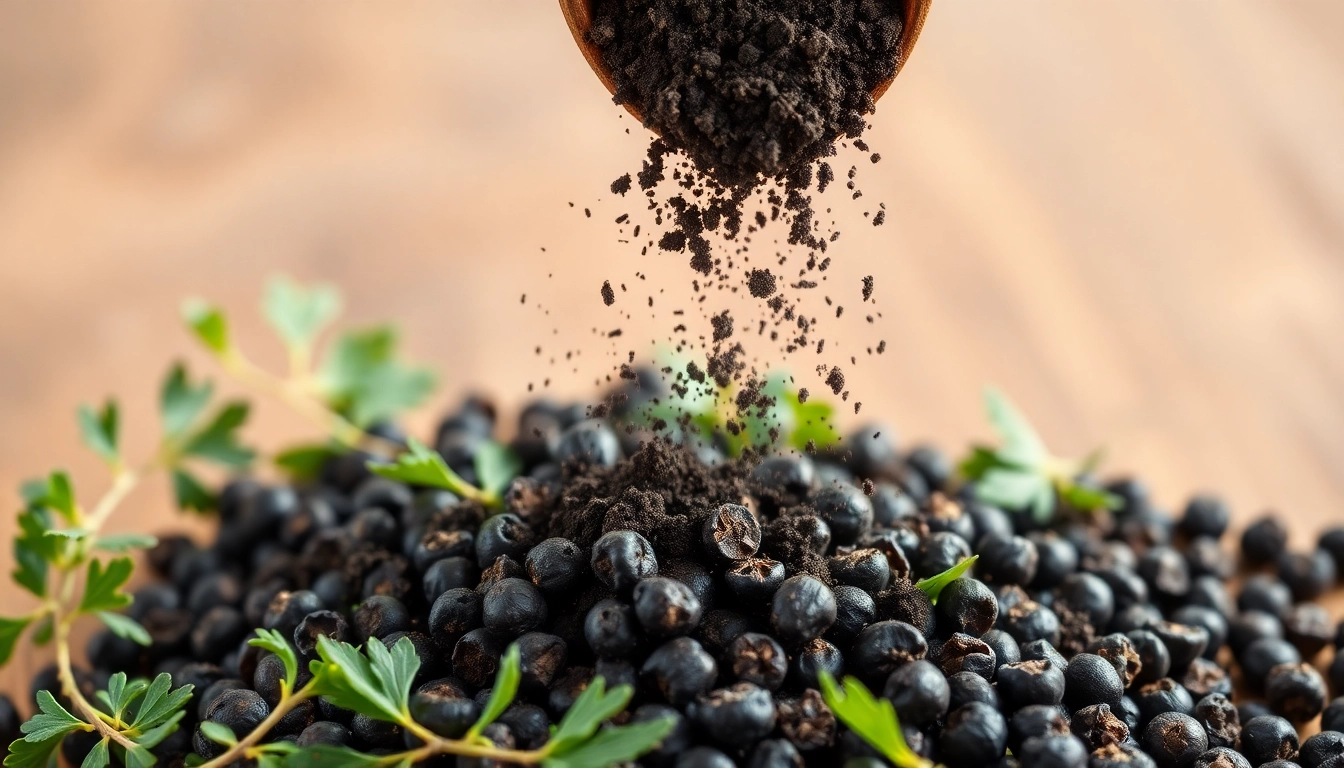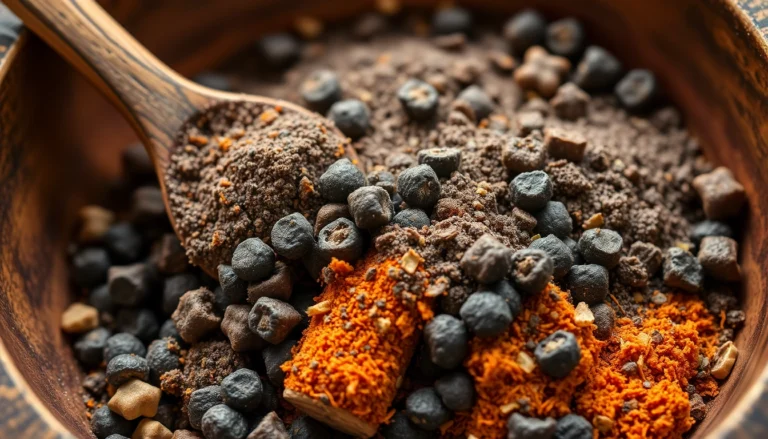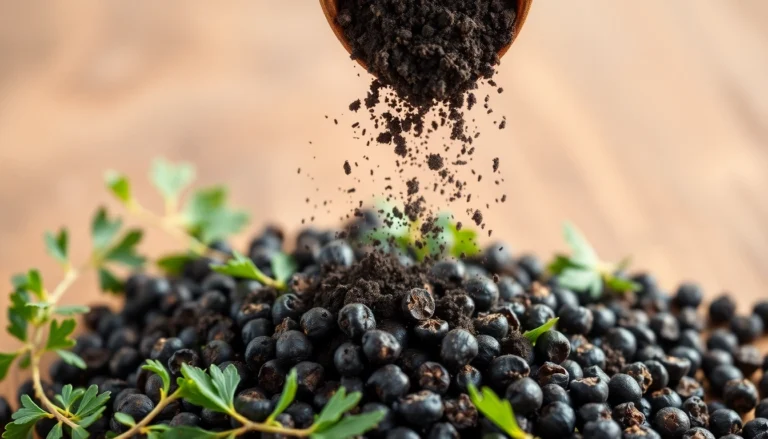
Understanding Black Pepper Powder: Types and Quality Standards
Black pepper powder, widely renowned as the “king of spices,” is an essential ingredient in culinary traditions around the globe. Its pungent aroma and sharp heat enhance a multitude of dishes, elevating flavors and adding depth. As a leading manufacturer and exporter of authentic spices, Spice Nest emphasizes the importance of understanding the various types and quality standards associated with Black Pepper Powder. This knowledge not only helps consumers make informed choices but also ensures that businesses maintain high standards in sourcing and quality assurance.
Different Varieties of Black Pepper Used in Powder Form
The primary varieties of black pepper used in powder form originate from different regions, each contributing unique characteristics to the final product. The two most prominent types are:
- Tellicherry Pepper: Cultivated in the Malabar region of India, Tellicherry pepper is known for its larger size, robust flavor, and complex aroma. It is often considered premium due to its rich and bold profile, making it ideal for gourmet cooking.
- Malabar Pepper: Another top-quality variety from India, Malabar black pepper exhibits a balanced heat and aroma. Its consistent size and flavor make it a favorite among manufacturers for producing high-grade black pepper powder.
In addition to regional varieties, some producers also classify black pepper based on processing techniques, such as Indonesian or Vietnamese black pepper, each contributing distinct flavor nuances.
Quality Certifications and Standards for Authentic Black Pepper Powder
Ensuring the quality and authenticity of black pepper powder involves adherence to various certifications and standards. Reputable manufacturers like Spice Nest acquire certifications such as:
- ISO Certifications: ISO 22000 for food safety management, guaranteeing hygiene and safety.
- HACCP Certification: Addressing critical control points in processing to eliminate contamination risks.
- Globally Recognized Organic Certifications: For organic black pepper, certifications such as USDA Organic and EU Organic ensure the product is cultivated without synthetic fertilizers or pesticides.
- FSSAI License: An essential certification for Indian manufacturers, guaranteeing compliance with national food safety standards.
These certifications not only verify product quality but also enhance market trust, especially when exporting to stringent markets like Europe, the USA, and the Middle East.
How to Identify Premium Black Pepper Powder in the Market
Distinguishing premium black pepper powder from inferior products involves a keen eye and taste test. Key indicators include:
- Aroma: High-quality pepper should have a strong, fragrant aroma, indicating freshness and proper curing.
- Color: Deep, uniform black color without any browning or dullness signifies good quality.
- Grind Consistency: Fine and uniform powder ensures even distribution in dishes, while clumpy or uneven grind may indicate poor processing.
- Packaging: Airtight, moisture-proof packaging preserves freshness and prevents contamination.
Additionally, verified certifications and transparent sourcing information are vital for consumers seeking authentic, high-grade black pepper powder.
Health Benefits and Nutritional Value of Black Pepper Powder
Rich Antioxidants and Digestive Health Properties
Black pepper is rich in bioactive compounds like piperine, which possesses potent antioxidant properties. These antioxidants help neutralize harmful free radicals in the body, reducing oxidative stress and potentially lowering the risk of chronic diseases. Moreover, black pepper stimulates the production of digestive enzymes, aiding in the breakdown of food and improving nutrient absorption.
Anti-inflammatory and Immune-Boosting Effects
The anti-inflammatory properties of piperine help mitigate inflammation-related conditions such as arthritis. Its immune-boosting effects further enhance the body’s defense mechanisms, making black pepper a valuable addition to a healthy diet, especially during flu seasons or immune-compromised conditions.
Incorporating Black Pepper Powder into a Healthy Diet
To maximize health benefits, it is recommended to include black pepper powder in daily meals. Simple tips include:
- Adding a pinch to salads, soups, and stews for flavor and health benefits.
- Sprinkling over roasted vegetables and grilled meats.
- Mixing into smoothies or teas for enhanced digestion.
However, moderation is key—excessive consumption can lead to gastrointestinal irritation or discomfort.
Cooking with Black Pepper Powder: Tips and Techniques
Best Practices for Using Black Pepper Powder in Various Cuisines
Black pepper powder is versatile across diverse culinary traditions. For best results:
- Always add black pepper early in cooking to develop a deeper flavor profile, especially in slow-cooked dishes.
- For finishing touches, sprinkle just before serving to preserve aroma and pungency.
- Pair with complementary spices like cumin, coriander, or chili for enhanced complexity.
In Indian cuisine, black pepper is crucial in spice blends like garam masala, while in Western recipes, it elevates grilled meats and sauces.
Balancing Flavors and Enhancing Dishes with Black Pepper
Black pepper’s pungency requires a delicate balance. Too much can overpower dishes, whereas appropriate amounts enhance other flavors. A practical approach is to start with small quantities and taste-test, adjusting gradually. Combining black pepper with acidic ingredients like lemon or vinegar accentuates its aroma and sharpness.
Precautions to Avoid Overusing Black Pepper Powder
Overusing black pepper can cause gastrointestinal discomfort, especially for sensitive individuals. Pregnant women and those with stomatitis should consume it in moderation. Using fresh black pepper or grinding just before use preserves its potency and minimizes potential irritation.
How to Store and Preserve Black Pepper Powder Effectively
Optimal Storage Conditions for Maintaining Flavor and Freshness
To retain maximum freshness, store black pepper powder in an airtight container, away from direct sunlight and humidity. A cool, dark pantry or spice drawer is ideal. Proper storage preserves essential oils, ensuring the spice’s aroma and pungency remain vibrant over time.
Durability and Shelf Life Considerations
When stored correctly, black pepper powder maintains optimal quality for up to 6 to 12 months. Beyond this period, aroma and flavor gradually diminish, though the powder remains safe for consumption. Regularly checking for changes in aroma or color helps assess freshness.
Tips for Grinding Fresh Black Pepper from Whole Berries
For the freshest flavor, grinding whole black pepper berries just before use is recommended. Use a mortar and pestle or a high-quality spice grinder. This approach unlocks the full aromatic potential and offers more control over grind size, which influences flavor release and heat level.
Market Trends and Future Outlook for Black Pepper Powder
Demand Drivers in the Global Spices Industry
The global demand for black pepper powder is rising driven by increasing consumer awareness of health benefits, culinary diversification, and the organic product surge. Major markets include North America, Europe, and emerging economies in Asia and Africa. Foodservice industries, especially restaurants and processed food manufacturers, are pivotal in expanding consumption.
Emerging Markets and Consumer Preferences
Growing urbanization and changing lifestyles propel the demand for convenient, ready-to-cook, and health-oriented products. Consumers are leaning toward organic, non-GMO, and sustainably sourced black pepper, prompting producers to innovate with eco-friendly cultivation and processing techniques.
Innovations and Product Diversification in Black Pepper Products
Future trends involve product diversification such as flavored black pepper powders (e.g., with herbs or chili), ready-to-use spice blends, and premium packaging catering to gourmet markets. Technological advancements in packaging extend shelf life, while eco-certifications attract environmentally conscious buyers.
Overall, the outlook for black pepper powder remains robust, provided producers meet quality standards and adapt to evolving market needs. Spice Nest’s commitment to authentic, certified products positions it advantageously in this competitive landscape.





